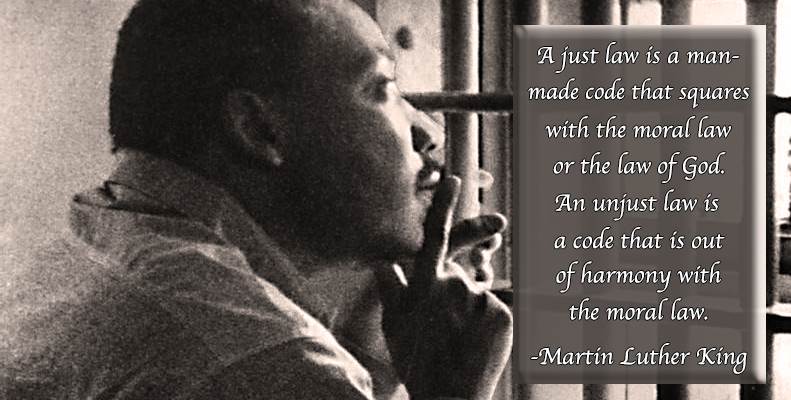Kerby Anderson
On Martin Luther King Jr. Day, let me suggest that you take some time to read his letter from a Birmingham Jail. If you are young, I think it will give you a better idea of what the civil rights movement in the 1960s was all about. If you are older, it will remind you of some forgotten events and chapters in American history.
Dr. King wrote the letter in response to a published statement by eight clergymen. He wrote it in the margins of the newspaper and later, on scraps of paper, and finally on a pad his attorney left for him.
He answers his critics about his tactics during the civil rights movement and then makes his case for his nonviolent campaign. To those who call his action “untimely,” he reminds them of what it is like to be a black person in America that has “seen vicious mobs lynch your mothers and fathers at will and drown your sisters and brothers at whim.”
He also deals with the controversial issue of just laws and unjust laws. “A just law is a man-made code that squares with the moral law or the law of God. An unjust law is a code that is out of harmony with the moral law.”
Finally, he addresses the responsibility of the church. He notes that the church of the early Christians “was not merely a thermometer that recorded the ideas and principles of popular opinion; it was a thermostat that transformed the mores of society.” And when they were commanded to do something contrary to the Bible they said they were “called to obey God rather than man.” This was a reference to Acts 5:29.
As you read his letter, remember that he wrote it when he was 34 years old and in jail. Ask yourself how many people you know (pastors, professors, activists) who could write with such intellect and such passion. This letter by Martin Luther King, Jr. is worth reading, and I trust you will consider doing so today.
 Listen Online
Listen Online Watch Online
Watch Online Find a Station in Your Area
Find a Station in Your Area









 Listen Now
Listen Now Watch Online
Watch Online
